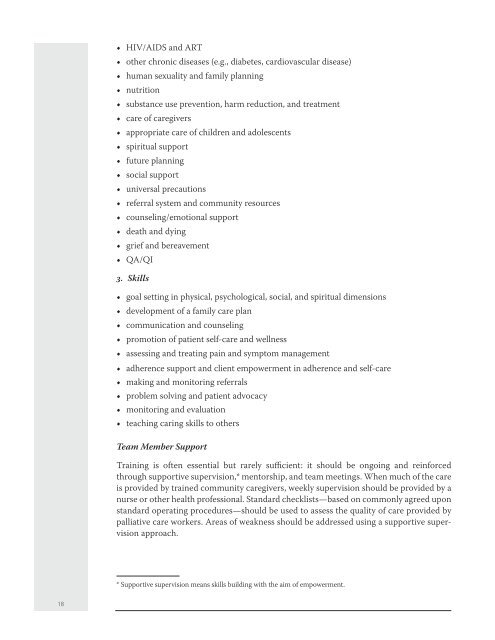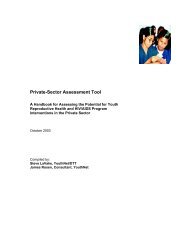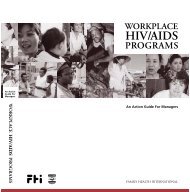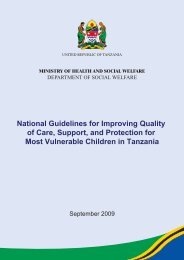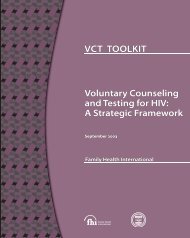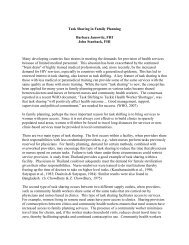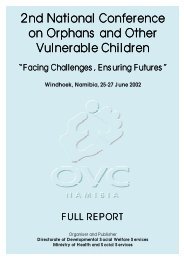Palliative Care Strategy for HIV and other diseases - FHI 360
Palliative Care Strategy for HIV and other diseases - FHI 360
Palliative Care Strategy for HIV and other diseases - FHI 360
You also want an ePaper? Increase the reach of your titles
YUMPU automatically turns print PDFs into web optimized ePapers that Google loves.
18<br />
•<br />
•<br />
•<br />
•<br />
•<br />
•<br />
•<br />
•<br />
•<br />
•<br />
•<br />
•<br />
•<br />
•<br />
•<br />
•<br />
<strong>HIV</strong>/AIDS <strong>and</strong> ART<br />
<strong>other</strong> chronic <strong>diseases</strong> (e.g., diabetes, cardiovascular disease)<br />
human sexuality <strong>and</strong> family planning<br />
nutrition<br />
substance use prevention, harm reduction, <strong>and</strong> treatment<br />
care of caregivers<br />
appropriate care of children <strong>and</strong> adolescents<br />
spiritual support<br />
future planning<br />
social support<br />
universal precautions<br />
referral system <strong>and</strong> community resources<br />
counseling/emotional support<br />
death <strong>and</strong> dying<br />
grief <strong>and</strong> bereavement<br />
QA/QI<br />
3. Skills<br />
•<br />
•<br />
•<br />
•<br />
•<br />
•<br />
•<br />
•<br />
•<br />
•<br />
goal setting in physical, psychological, social, <strong>and</strong> spiritual dimensions<br />
development of a family care plan<br />
communication <strong>and</strong> counseling<br />
promotion of patient self-care <strong>and</strong> wellness<br />
assessing <strong>and</strong> treating pain <strong>and</strong> symptom management<br />
adherence support <strong>and</strong> client empowerment in adherence <strong>and</strong> self-care<br />
making <strong>and</strong> monitoring referrals<br />
problem solving <strong>and</strong> patient advocacy<br />
monitoring <strong>and</strong> evaluation<br />
teaching caring skills to <strong>other</strong>s<br />
Team Member Support<br />
Training is often essential but rarely sufficient: it should be ongoing <strong>and</strong> rein<strong>for</strong>ced<br />
through supportive supervision,* mentorship, <strong>and</strong> team meetings. When much of the care<br />
is provided by trained community caregivers, weekly supervision should be provided by a<br />
nurse or <strong>other</strong> health professional. St<strong>and</strong>ard checklists—based on commonly agreed upon<br />
st<strong>and</strong>ard operating procedures—should be used to assess the quality of care provided by<br />
palliative care workers. Areas of weakness should be addressed using a supportive supervision<br />
approach.<br />
* Supportive supervision means skills building with the aim of empowerment.


